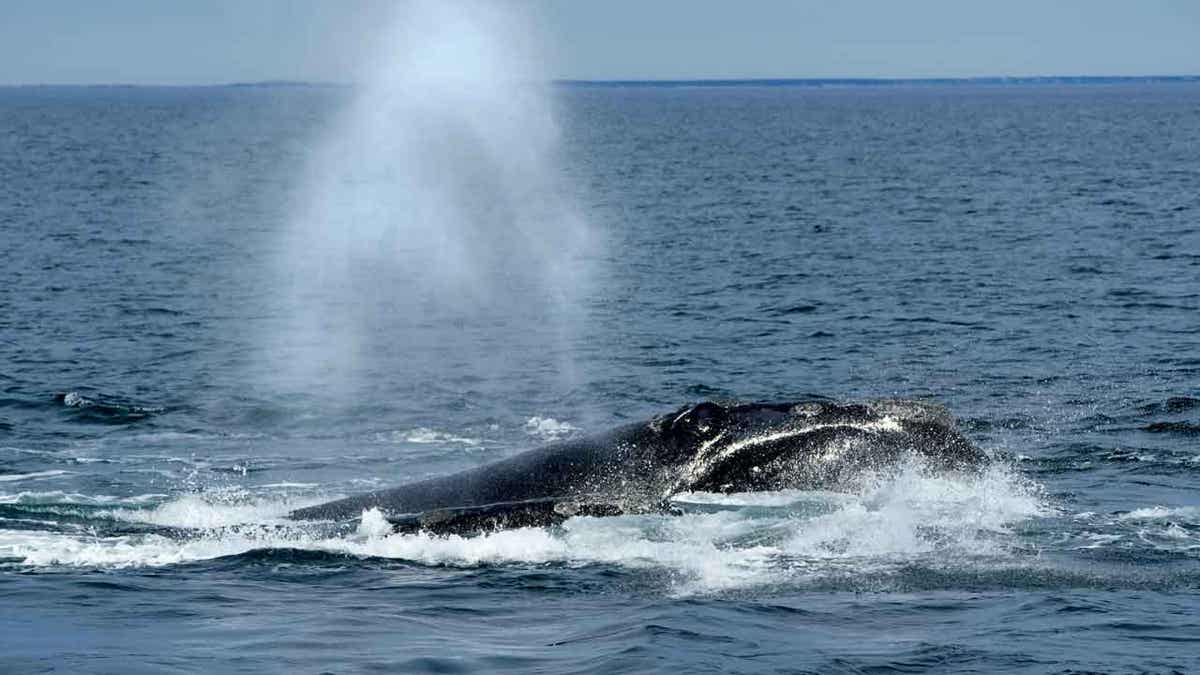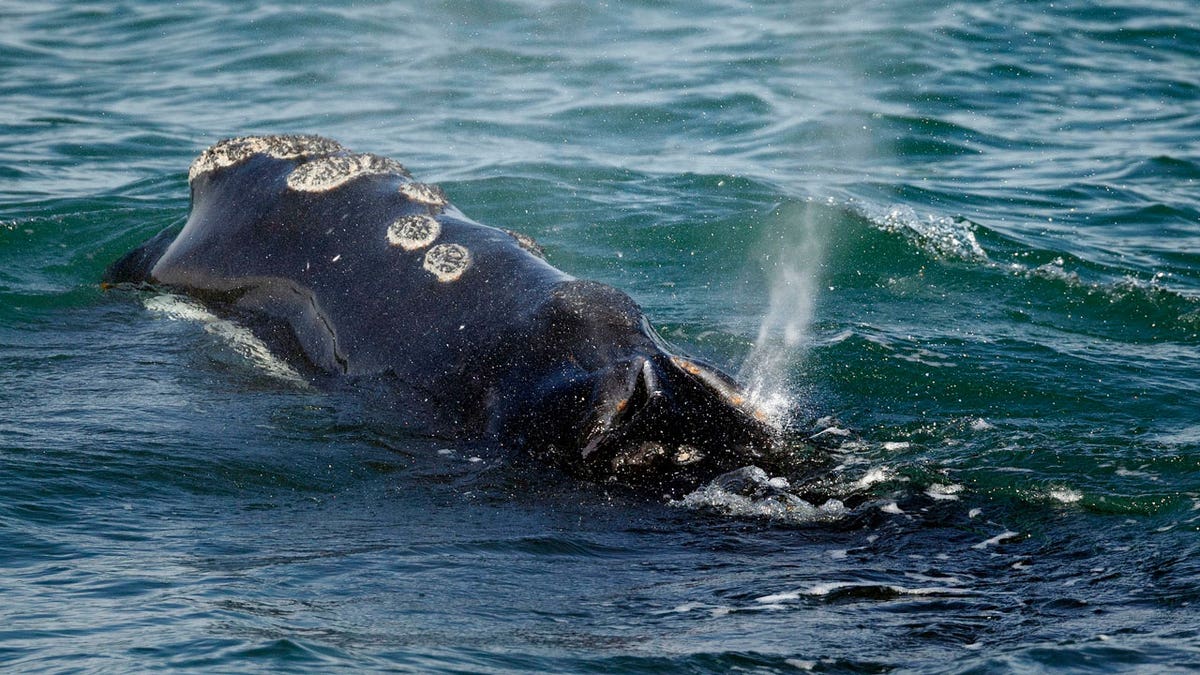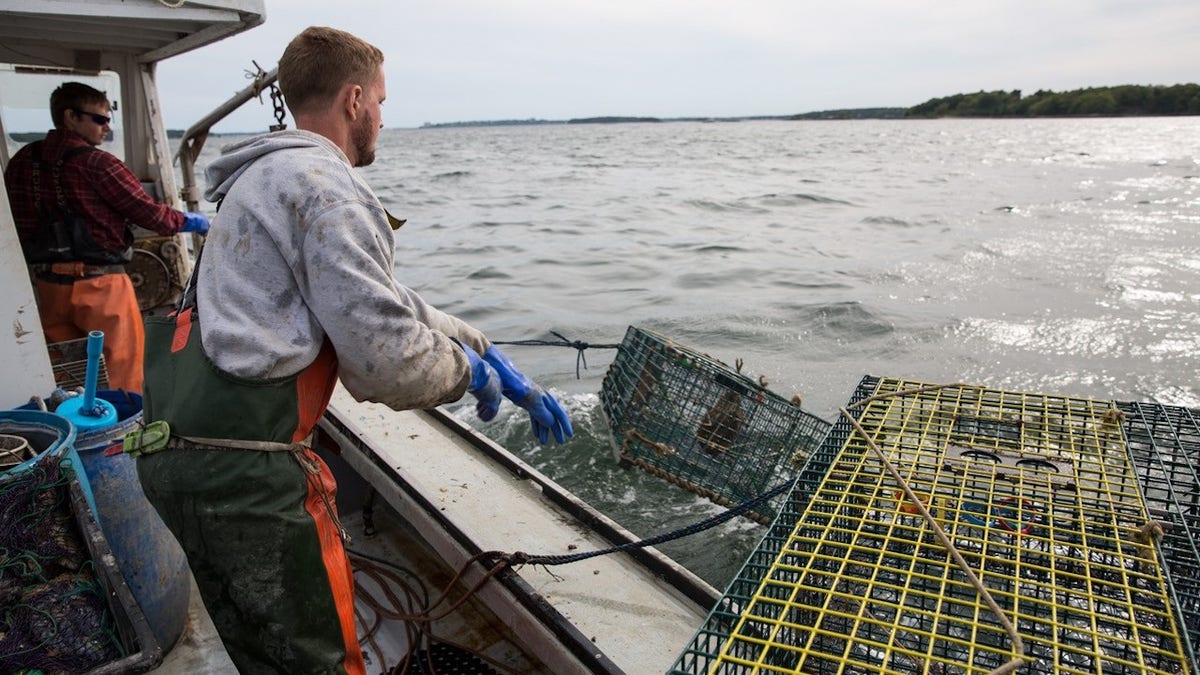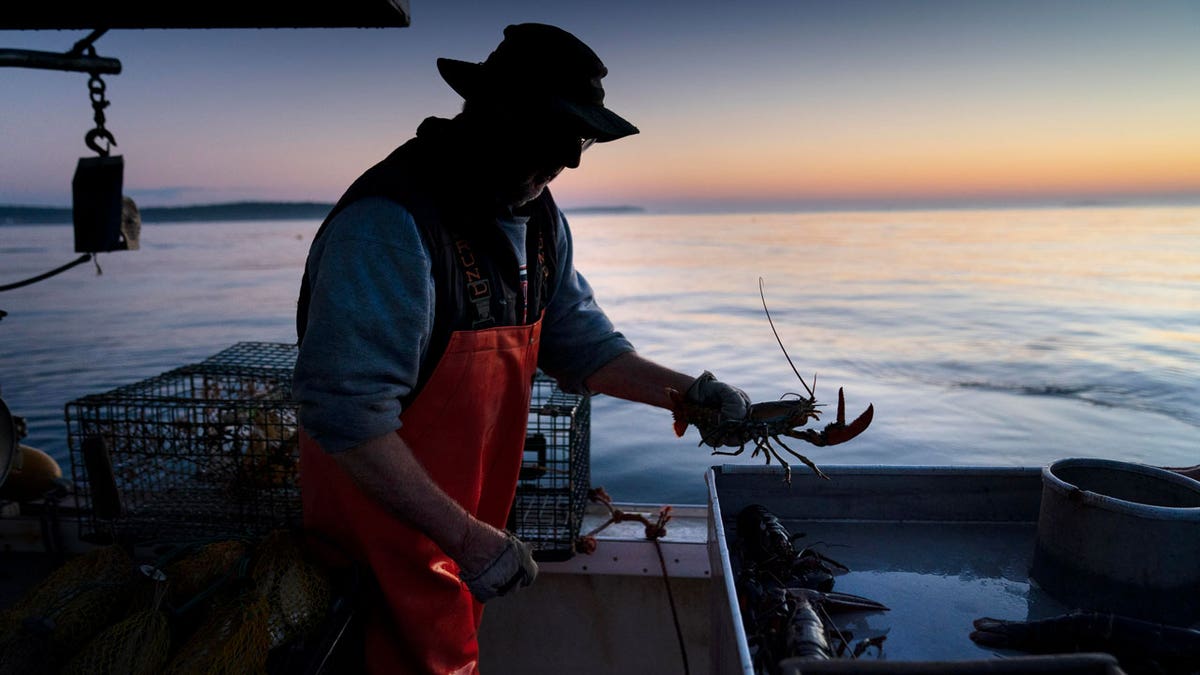New Jersey lawmakers pushing to pause wind farm projects due to spike in whale deaths
Republican New Jersey State Sen. Michael Testa Jr. on why lawmakers are demanding a stop to offshore wind projects
The Biden administration appears to be scrambling for research on the conflict between wind turbines and a highly endangered whale species on the East Coast following reports of "unprecedented" whale deaths.
The Bureau of Ocean Energy Management (BOEM), a regulatory body from the Department of Interior that leases offshore areas for energy development, posted a grant notice in May targeted at "addressing key information gaps in acoustic ecology of the North Atlantic Right Whales," one of the most endangered whale species in the world.
The problem is the government has already approved offshore wind projects, and some experts are saying the attention to the whales is too little too late.
Fisherman in the region are calling the government "hypocritical" after the same federal agencies almost "regulated [them] completely out of business" in an effort to protect the endangered species without any data showing fishermem bring any harm to the right whale.

A North Atlantic right whale surfaces on Cape Cod Bay in Massachusetts March 27, 2023. (AP Photo/Robert F. Bukaty, NOAA permit # 21371)
BOEM's grant notice states, "In support of the rapid development of offshore wind (OSW) on the Atlantic OCS, the Environmental Studies Program (ESP) has identified a priority need to address knowledge gaps in the acoustic behavior of critically endangered North Atlantic right whales (NARW).
"The overall goal of this cooperative agreement is to observe and describe acoustic behavior of NARW where significant data gaps in call rates exist and convey information about the context in which the acoustic behaviors are observed."
Acoustics are critical in tracking and monitoring movement and behaviors of the whales.
HOW MAINE LOBSTERMEN TURNED A ‘SLAP IN THE FACE’ FROM THE WHITE HOUSE INTO A POLICY VICTORY
Annie Hawkins, executive director of the Responsible Offshore Development Alliance, which aims to improve compatibility of new offshore development with the fishing industry, said its "very late" for the Biden administration to be soliciting such research.
"One of the problems is that, at least in the last few years, there's been some conversations about what kind of research needs to be done. But, up till now, there's been no funding. Congress hasn't appropriated anything, nothing's been getting done. And it's a bit late, it's very late to be starting to look at this stuff," Hawkins said.

A North Atlantic right whale feeds on the surface of Cape Cod bay off the coast of Plymouth, Mass., March 28, 2018. (AP Photo/Michael Dwyer, File)
Production on at least one major wind farm project is already underway. The first phase of Vineyard Wind 1, the first large-scale offshore wind farm in the United States, was completed at the end of last month.
The project consists of 62 turbines, each up to 850 feet high (taller than any building in Boston) with blades roughly 350 feet long, planted 15 miles off Martha’s Vineyard. Project benefactors boast that the wind farm will ultimately power 400,000 homes and businesses across Massachusetts while reducing carbon emissions by over 1.6 million tons per year.
Hawkins says that instead of analyzing the cumulative data on whale impacts from surveys for wind projects, the National Marine Fishery Service (NMFS) and BOEM assess possible impact project by project.
SUPREME COURT ACCEPTS CASE THAT HAS POTENTIAL TO ERODE POWER OF FEDERAL REGULATORS
"They really don't assess the impacts to right whales and manage for it. Surveys are almost unregulated," Hawkins said.
"I do believe that the reason the way the government approaches these projects overall is to minimize what the effects would be.
"I think it does absolutely mask real-world impacts and the cumulative effects scenario, which is the only credible way to do this. Because, obviously, you know, this is the ocean. Water moves, fish move, whales move. And, so, to look at them in isolation is pretty ridiculous."
Cindy Zipf, executive director of Clean Ocean Action, testified in March before a House Committee on Capitol Hill that "[w]hile some offshore wind may hold promise, federal and state levels have moved forward without transparency, robust and sound science or good governance."

Maine lobstermen haul in their latest catch off the state's coast. (Maine Lobstermens Association/Marketing Collaborative)
Zipf testified that NMFS previously found that offshore wind can increase ocean noise, which can affect behaviors of whales; introduce electromagnetic fields that impact their navigation, predator detection and communication; and change species composition and survival rates, among other things.
"The NMFS concludes with, ‘Offshore wind is the new use of our marine waters, requiring substation scientific and regulatory review,’" Zipf testified. "So, where is the substantial review? Where is the commitment to the precautionary principle?"
THIRD DEAD WHALE FOUND MILES FROM OFFSHORE WIND FARM IN LESS THAN A WEEK
Clean Ocean Action noted in February following the ninth whale death in the northeast that the "alarming number of [whale] deaths is unprecedented in the last half century." The only unique factor from previous years is the excessive scope, scale and magnitude of offshore wind power plant activity in the region, the group noted.
Zipf emphasized that "climate change is real" and "living resources on the planet are in crisis." But offshore wind projects should only be approved after pilot scale projects are proven to be successful and that the science supports industrial scale plants.
"It seems our government is, as best, putting the cart before the horse and wants to see offshore wind while wearing only ‘green-colored’ glasses," she said.

Lobsterman Dustin Delano says it's "really frustrating" his industry is "constantly held to a different standard than something else that the government might really want, such as offshore wind." (AP Photo/Robert F. Bukaty, File)
Dustin Delano, chief operating officer of the New England Fishermen’s Stewardship Association (NEFSA) said the government cutting corners to cater to offshore wind is "incredibly hypocritical."
"One right whale death is too many. I don't think you'd find any fishermen that would disagree … one is too many. And for the government to be holding offshore wind to a different standard is blasphemy, in my mind. Incredibly hypocritical."
Dustin is a fourth-generation lobsterman from Maine. For years, he says, NMFS and other federal agencies mandated stringent rules that forced his industry to make major modifications and changes to avoid entanglements with a right whale.
To date, no right whale deaths have been associated with his industry's fishing gear. And the one entanglement that occurred over 20 years ago did not result in a right whale death.
When NMFS imposed a rule last year that would cut in half the number of traps that could be deployed and threatened to kill their livelihood, Maine lobstermen sued the Biden administration.
CLICK HERE TO GET THE FOX NEWS APP
In June, the lobstermen won in court, with a judge calling the NMFS legal reasoning "egregiously wrong."
But Delano says it's still "really frustrating" that his industry is "constantly held to a different standard than something else that the government might really want, such as offshore wind."
"There's just a huge political-driven agenda right now to push it through as fast as possible," Delano said.














































